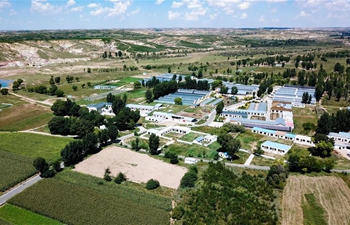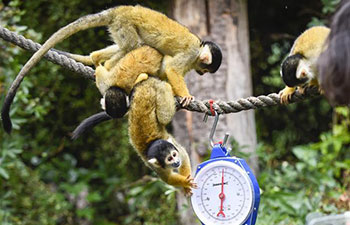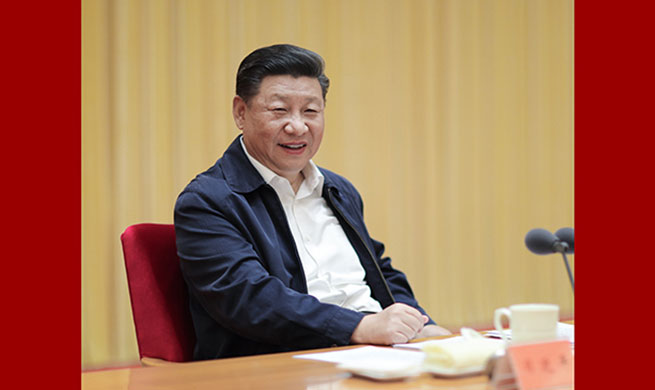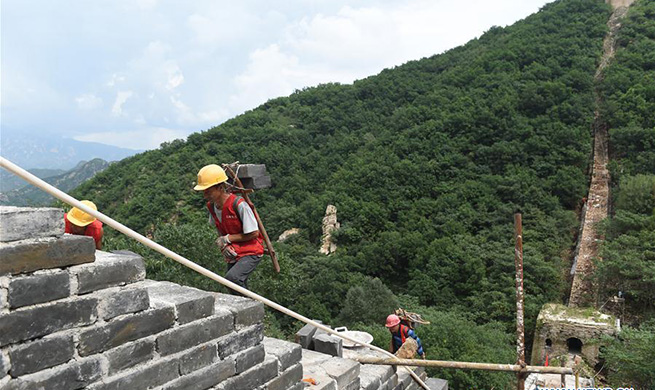JUBA, Aug. 24 (Xinhua) -- Members of the UN Commission on Human Rights in South Sudan on Friday said political violence has declined in the country since the recent signing of the peace agreement by warring parties, amid concerns on rising criminality and cattle raiding.
The five-member mission that concluded its visit to South Sudan observed in its preliminary report however that there are growing concerns of continued impunity by government troops and militias that splintered from the main rebel group the Sudan People's Liberation Army-in opposition (SPLA-IO).
Yasmin Sooka, the head of the mission team, told journalists in Juba that its initial observation from its visits to Wau, Yei and Juba revealed a decline in political violence and an increase in criminality and cattle raiding linked to politics.
She noted that the proliferation of armed groups with previous links to SPLA-IO that have splintered into different factions in Yei.
The commissioners said humanitarian workers in Yei have been under siege, citing the recent abduction of 10 aid workers on April 27 and killing of a UN peacekeeper on June 26 in an ambush targeting a humanitarian convoy.
"Humanitarian have increasingly come under attack by various armed groups including government soldiers," Sooka said.
They disclosed that there is complete absence of state action and accountability in Yei for atrocities committed by both the government and armed groups.
The UN experts also noted that a large number of babies born out of rape have been abandoned in the border town that bore heavy brunt of the war during the wake of the renewed violence in July spreading to the town near the Ugandan border that further led to massive displacements to neighboring countries.
They added that the government should move to act on solving the issue of illegal occupation of land and houses in Yei of those returning people that were displaced due to war to avoid reoccurrence of violence over property.
"Houses are being occupied by other ethnic groups. Many feel frustrated at the government's inaction on the return of land and homes to their original owners and I think this is going to be a major challenge in the country as the peace implementation begins to take place," said Sooka.
There was no immediate comment from the government side.
President Salva Kiir, rebel leader Riek Machar and other opposition groups signed the Aug. 5 peace agreement in Khartoum to end over four years of conflict.













